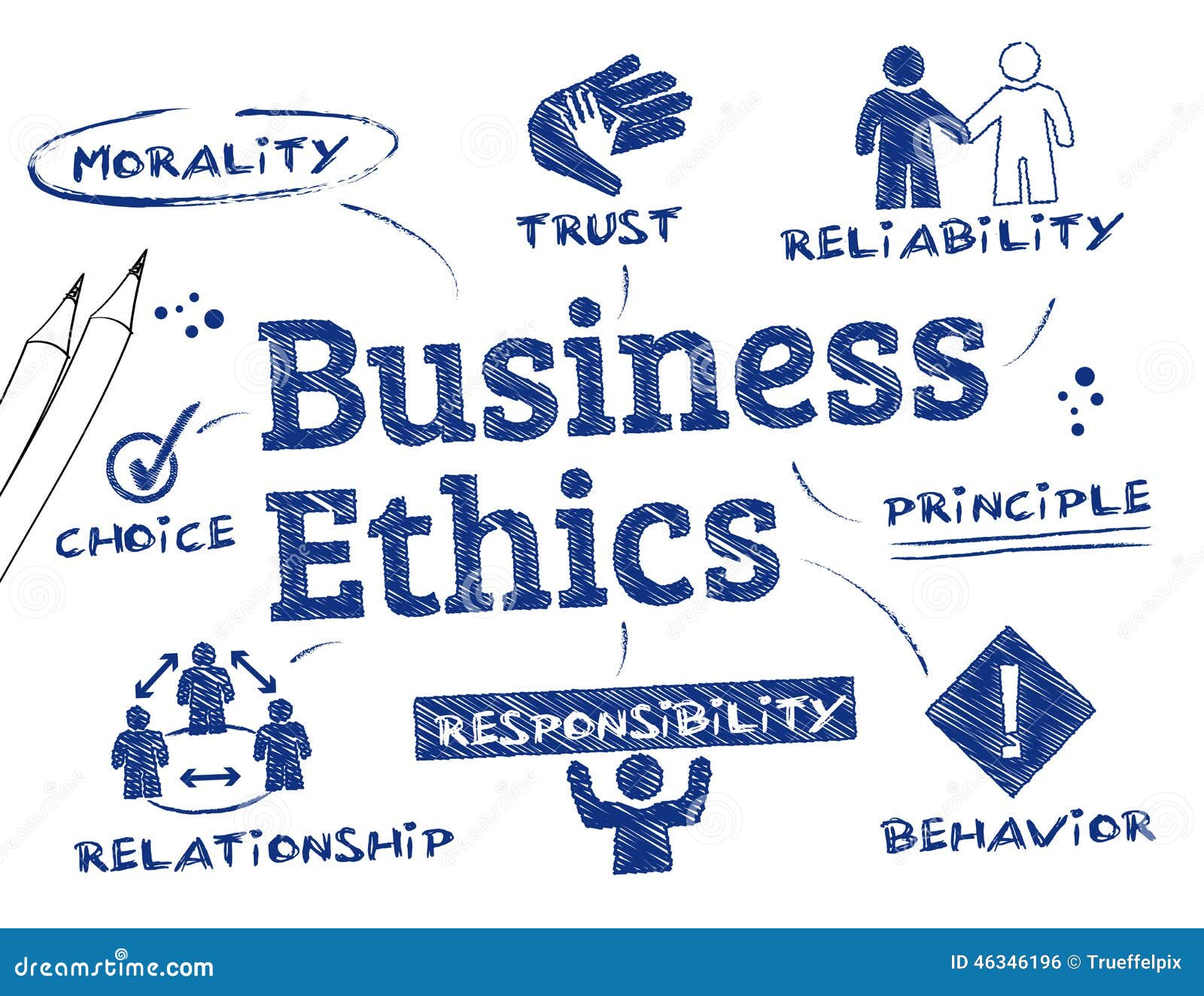Business ethics are crucial for navigating the increasingly complex landscape of today’s corporate environment. As technology advances and global connections deepen, business leaders are confronted with ethical dilemmas that often stretch beyond clear right and wrong. Understanding ethical decision making is vital; it requires analyzing not just the legality of actions but also their moral implications. Renowned ethicist Joseph Badaracco highlights the importance of recognizing gray areas in ethics, where decision-making isn’t about black-and-white choices but navigating intricate responsibilities towards various stakeholders. In a world fraught with complexities, a strong grounding in business ethics can empower leaders to make decisions that uphold integrity and foster trust in their organizations.
The principles that underpin corporate responsibility are more important than ever in today’s interconnected world. Often referred to as corporate morality or ethical management, these guidelines help organizations assess the impact of their actions and decisions. This involves a deliberate process of evaluating stakeholder interests and balancing them against corporate objectives. The landscape of ethical governance has shifted, with leaders frequently encountering situations rife with ambiguity and competing obligations. Emphasizing ethical practices in leadership not only enhances a company’s reputation but also ensures sustainable business growth.
Understanding Business Ethics in Today’s Workplace
Business ethics plays a pivotal role in guiding the decision-making processes of leaders and managers across various industries. Joseph Badaracco, a notable business ethicist, emphasizes that over the past three decades, the definition and scope of business ethics have evolved significantly. Today, ethical decision-making requires a nuanced understanding that goes beyond basic moral philosophies. Executives must navigate complex relationships with stakeholders, where the line between ethical and unethical decisions can sometimes appear blurred. This evolution highlights the importance of grounding ethical discussions in real-world contexts and situations.
Moreover, the complexity of modern ethical dilemmas demands a more inclusive approach to decision-making. Business leaders are increasingly faced with ‘gray areas’ that involve multiple competing obligations and responsibilities. Understanding these complexities is critical, as making informed decisions that align with ethical standards requires a comprehensive analysis of the situation. Such understanding also encourages a culture of transparency and accountability within organizations, ensuring that leaders are not only aware of their ethical responsibilities but are also equipped with the tools to address them effectively.
Navigating Gray Areas in Ethics and Decision-Making
Gray areas in ethics represent challenges that many business leaders encounter when making decisions that affect their organizations and stakeholders. Unlike straightforward black-and-white scenarios, these ethical dilemmas require deep introspection and a careful analysis of all involved factors. Joseph Badaracco points out that successful decision-making in such situations often comes down to one’s ability to process information accurately and to acknowledge the various perspectives at play. By doing so, leaders can strive for a balanced approach that weighs ethical responsibilities against practical realities.
Addressing gray areas requires more than just analytical thinking; it involves creating an environment where ethical discussions are encouraged and biases are reduced. Engaging diverse teams can unveil a range of insights that help refine ethical judgments. This collaborative approach not only aids in identifying potential pitfalls in decision-making but also enhances the overall ethical framework within which leaders operate. Ultimately, by fostering a culture of open dialogue and continuous reflection, organizations can empower their leaders to navigate complex ethical landscapes confidently.
The Role of Ethical Reflection in Decision-Making
Reflection is a crucial component of ethical decision-making, allowing leaders to critically evaluate their thoughts and choices in light of ethical principles. Badaracco’s research indicates that effective decision-makers often engage in various reflective practices that help clarify their values and responsibilities. Whether it’s through informal discussions with colleagues or dedicated time for personal contemplation, these methods serve to align their decisions with core ethical standards. By reflecting on what truly matters in a given situation, leaders can better assess the implications of their actions.
In addition, consistent reflection cultivates a mindset that recognizes the importance of evolving ethical standards. As businesses face new challenges, particularly with the advent of technology and globalization, staying attuned to ethical issues becomes paramount. Decision-makers must regularly revisit their fundamental question: “What can I live with?” This inquiry not only aids in establishing integrity but also reinforces their commitment to ethical practices in their organizations, enabling them to lead with confidence and purpose.
Strategies for Ethical Decision-Making in Business
Implementing effective strategies for ethical decision-making can significantly enhance a company’s moral compass. Business leaders are encouraged to adopt structured frameworks that facilitate clear ethical evaluations. One effective strategy involves identifying the key stakeholders affected by a decision, as this can illuminate potential conflicts and ethical dilemmas that might otherwise be overlooked. Additionally, by incorporating diverse viewpoints from various departments within the organization, leaders can gain valuable insights into the ethical implications of their choices, mitigating the impact of cognitive biases.
Another essential strategy is the use of scenario analysis, where leaders simulate potential outcomes based on different decisions. This forward-thinking approach allows them to weigh the consequences of their actions against established ethical benchmarks. By envisioning the repercussions of their choices in advance, business leaders can better prepare themselves for navigating complex ethical landscapes while still aligning with their company’s mission and values. Such proactive measures not only foster sound ethical practices but also contribute to a more accountable organizational culture.
Understanding Utilitarianism and Its Impact on Business Ethics
Utilitarianism has long been a cornerstone of ethical decision-making in business. This philosophical approach suggests that the best action is the one that maximizes utility, often understood as the greatest good for the greatest number. However, the application of utilitarian principles in business contexts can lead to complex ethical dilemmas. For example, business leaders must consider how their decisions will affect various stakeholder groups—employees, customers, shareholders, and the broader community—balancing competing interests to arrive at a sound ethical judgment.
While utilitarianism offers a compelling framework for decision-making, its implementation requires careful analysis. Leaders often face challenges assessing the long-term consequences of their actions, as immediate benefits may overshadow potential drawbacks. Joseph Badaracco advocates for a more nuanced interpretation of utilitarianism, encouraging leaders to weigh not only the quantitative benefits but also the qualitative aspects of their decisions. By adhering to a comprehensive utilitarian perspective, business leaders can enhance their ethical decision-making and foster a culture of accountability within their organizations.
The Importance of Stakeholder Engagement in Ethical Decisions
Engaging stakeholders in the decision-making process is crucial for fostering ethical business practices. Stakeholders—including employees, customers, suppliers, and investors—possess diverse perspectives that can inform better decision-making. By actively seeking input from these groups, business leaders can gain a fuller understanding of the ethical implications of their choices. This approach not only enhances transparency but also builds trust and loyalty among stakeholders, which are essential for long-term success.
Furthermore, incorporating stakeholder feedback can help identify potential ethical concerns early in the decision-making process. By addressing these concerns proactively, organizations can avoid pitfalls that might lead to ethical breaches or reputational damage. Joseph Badaracco emphasizes the importance of maintaining an ongoing dialogue with stakeholders, which serves to reinforce a company’s commitment to ethical practices. Ultimately, fostering a culture of stakeholder engagement can empower leaders to navigate the complexities of ethical decision-making and uphold organizational integrity.
Cognitive Biases and Their Role in Ethical Decision-Making
Cognitive biases can significantly influence ethical decision-making, often leading individuals to make choices that deviate from their moral principles. Many leaders find themselves unconsciously swayed by biases that distort their judgment, especially in ambiguous situations where ethical dilemmas arise. Joseph Badaracco stresses the need for awareness and introspection when navigating these biases, encouraging leaders to question their assumptions and motivations throughout the decision-making process.
To combat the effects of cognitive biases, organizations must foster an environment that promotes ethical dialogue and critical thinking. This can involve implementing decision-making frameworks that explicitly address potential biases and encourage collective input. By cultivating a culture that values ethical considerations, business leaders can strengthen their ability to make responsible decisions. Ultimately, recognizing and mitigating cognitive biases empowers leaders to act with integrity and align their actions with ethical standards, enhancing the overall ethical climate within their organizations.
Technology’s Impact on Business Ethics and Decision-Making
The rapid advancements in technology pose new challenges for ethical decision-making in business. From artificial intelligence (AI) to big data, the digital landscape presents unique ethical dilemmas that necessitate fresh evaluations of traditional business ethics frameworks. As technology continues to disrupt industries, business leaders must be prepared to address ethical issues related to data privacy, algorithmic bias, and the implications of automation on employment.
In the face of these challenges, Joseph Badaracco urges leaders to consider the ethical ramifications of their technological choices. By aligning technological innovations with ethical principles, organizations can navigate the complexities of the digital age while maintaining their commitment to ethical decision-making. Thus, ethical considerations should be embedded in the process of adopting and implementing new technologies, ensuring that business practices evolve to meet both market demands and social responsibilities.
Creating a Culture of Ethical Accountability in Organizations
Building a culture of ethical accountability requires intentional efforts from business leaders at all levels. Leadership must consistently model ethical behavior and decision-making, serving as role models for employees throughout the organization. This involves developing clear policies and frameworks that outline the organization’s ethical standards and the responsibility each employee has in upholding them. By establishing these expectations, leaders create an environment where ethical considerations take precedence in every decision.
Furthermore, organizations should ensure that employees have access to resources that support ethical decision-making, such as training and mentorship programs. Encouraging open communication about ethical concerns and the risks associated with unethical behavior can foster a culture of trust and accountability. Joseph Badaracco emphasizes that leaders must not only preach ethical standards but also actively engage employees in discussions about their implications. In doing so, organizations can cultivate a workplace where ethical considerations are paramount and where employees feel empowered to act responsibly.
Frequently Asked Questions
What is the concept of ethical decision making in business ethics?
Ethical decision making in business ethics refers to the process by which individuals or managers evaluate situations and determine the right course of action based on ethical principles. This approach often involves analyzing the implications of decisions, considering the views of various stakeholders, and navigating complex gray areas in ethics that impact organizational integrity.
How can business leaders effectively navigate gray areas in ethics?
Business leaders can navigate gray areas in ethics by engaging in thorough analysis and reflection before making decisions. This includes considering the available facts, the influence of cognitive biases, and collaborating with others to gain diverse perspectives. By focusing on responsible and practical outcomes, leaders can reduce the risks of unethical behavior and ensure their decisions align with ethical standards.
What role does Joseph Badaracco play in the field of business ethics?
Joseph Badaracco is a prominent figure in the field of business ethics, serving as the John Shad Professor at Harvard Business School. He has developed curricula that emphasize ethical decision making among business leaders and has published works that explore complex decision-making processes, providing insights into how executives can address ethical dilemmas effectively.
Why is reflection important for ethical decision making?
Reflection is crucial for ethical decision making as it allows individuals to think deeply about their responsibilities and the implications of their choices. By reflecting on what truly matters, potential biases, and the impacts of decisions, business professionals can better align their actions with ethical standards and provide a clear path forward in complex situations.
What challenges do business leaders face in ethical decision making today?
Today, business leaders encounter increased complexities in ethical decision making due to international influences, technological advancements, and evolving legal responsibilities. These challenges require a nuanced understanding of various ethical perspectives and the ability to address conflicts among stakeholders as they strive to make responsible decisions.
How can companies foster an ethical culture among their leaders?
Companies can foster an ethical culture by providing education on ethical decision making, promoting open dialogue about ethical dilemmas, and encouraging leaders to share experiences with complex decisions. Establishing clear ethical guidelines, reinforcing accountability, and recognizing ethical behavior can also help create an environment where responsible choices are valued.
What strategies can be employed to improve ethical decision-making in organizations?
To improve ethical decision-making, organizations can implement training programs focused on ethical standards, develop frameworks for analyzing complex scenarios, and create support systems for leaders to discuss ethical challenges. Encouraging collaboration and diversity in perspectives can also enhance the quality of decisions made in gray areas of ethics.
How can business leaders avoid self-serving decisions in ethical dilemmas?
Business leaders can avoid self-serving decisions in ethical dilemmas by actively seeking feedback, consulting with peers or mentors, and remaining aware of their cognitive biases. Engaging in transparent discussions about the ethical implications of choices can help ensure that personal interests do not overshadow responsible decision-making.
What is the significance of legal gray areas in business ethics?
Legal gray areas in business ethics represent situations where the right course of action may not be clear due to ambiguous laws or overlapping moral responsibilities. Navigating these gray areas requires careful consideration, sound judgment, and a commitment to ethical principles, as leaders must balance legal obligations with their ethical duties to stakeholders.
How has the approach to business ethics evolved in the modern corporate world?
The approach to business ethics has evolved from a focus on applying moral philosophy to a more practical and situational analysis. Business ethics now emphasizes understanding the complexities of international contexts, stakeholder relationships, and technological challenges, encouraging leaders to adapt their ethical frameworks to align with contemporary business realities.
| Key Point | Details |
|---|---|
| Changing Ethics Landscape | Business ethics have evolved from strict moral philosophy to a more situational and contextual approach. Ethical issues are more complex and international. |
| Complexity of Decision-Making | Today’s executives deal with numerous stakeholders and their decisions are often influenced by complex relationships and social responsibilities, leading to more intricate ethical considerations. |
| Gray Areas in Ethics | Ethical decision-making often falls into gray areas where judgment and personal responsibility play crucial roles, as opposed to clear legal lines. |
| Bias in Decision-Making | Executives may have cognitive biases that cloud their judgment; collaboration and critical analysis are key to making responsible decisions. |
| Importance of Reflection | Reflection is essential for ethical decision-making, helping leaders clarify their responsibilities and the implications of their choices. |
Summary
Business ethics play a crucial role in guiding executives and leaders through the complexities of decision-making in today’s changing landscape. In light of recent high-profile ethical breaches, it is more important than ever to establish frameworks that prioritize ethical reasoning and reflection in the workplace. As the nature of business evolves, so too must our understanding and application of business ethics, ensuring leaders are equipped to navigate both moral dilemmas and legal challenges.



